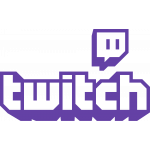Esports and training — where to learn to be professionals
The esports industry has transformed into a global ecosystem with multimillion-dollar turnovers. Professional players, managers, analysts, and tournament organizers require specialized training. Esports education has become a natural stage in the development of the industry. Modern educational programs offer a comprehensive approach to training specialists. Systematic education allows mastering not only gaming skills but also related disciplines necessary for a successful career. The relevance of esports education is confirmed by the growing number of educational institutions implementing corresponding programs.
Specialized Education in Universities
Leading universities around the world actively develop esports programs. Russian universities are not left behind in this trend. The National Research University ITMO offers a program in "Esports Project Management." RSUPESM prepares specialists under the program "Theory and Methodology of Esports." Higher education in esports includes studying management, marketing, legal fundamentals, and psychology. Students learn team management, event organization, and media promotion. The academic base is combined with practical lessons under the guidance of experienced mentors.
Specialized Esports Schools
Esports schools for professionals have been created to train players. Institutions like ESForce Academy and Virtus.pro Prodigy offer comprehensive training programs. Training includes individual and group sessions, analysis of game situations, and psychological preparation. Preparing esports athletes requires special infrastructure: gaming zones with professional equipment, rooms for theoretical lessons, and space for physical activities. Coaches work on developing skills in team interaction, strategic thinking, and emotional resilience. Graduates of such schools join professional teams.
Online Platforms and Courses
The digital environment is ideal for online esports courses. Platforms like GamerzClass and ProGuides offer lessons from well-known players. Educational content includes video analytics, training exercises, and personal consultations. Distance learning in esports allows studying from anywhere in the world on a flexible schedule. Programs cover various aspects: from basic mechanics to advanced tactical schemes. Interactive formats provide constant communication with instructors and prompt skill adjustments. This approach demonstrates high effectiveness for beginner players.
Additional Skills for a Career in Esports
Success in the industry requires mastering related professions in esports. Managers organize performances, negotiate contracts, and interact with sponsors. Analysts study statistics, develop tactical schemes, and prepare materials for teams. Training in esports management is available in business schools and specialized courses. Commentators and journalists master presentation skills and working with information. Technical specialists ensure uninterrupted operation of equipment and software. Each direction requires specific knowledge and practical experience.
International Educational Initiatives
Global experience demonstrates a variety of approaches to international esports education. Universities in South Korea integrate esports into academic programs. Chinese educational institutions cooperate with leading game studios. Foreign esports schools offer exchange programs and internships. International camps gather promising players for intensive training. European educational centers emphasize research work and the development of training methodologies. The globalization of esports creates conditions for sharing best practices in education.
Practical Component of Training
Effective educational programs necessarily include practice in esports organizations. Students undergo internships in professional clubs, media companies, and event agencies. Participation in tournaments at various levels allows applying acquired knowledge. Employment in esports becomes a real result of quality education. Graduates work in organizations such as ESForce, MyGame, and CyberAcademy. Career growth is possible both in gaming disciplines and in managerial positions. The constant development of the industry creates new opportunities for professional realization.
Prospects for the Development of Esports Education
The future of the industry is connected with professional esports training. The emergence of new specializations and deepening of existing programs are expected. Digital technologies will enable the creation of immersive training environments. A career in esports will require continuous education and adaptation to changes. Scientific research in esports will reveal new training methodologies. Education standardization will ensure the recognition of qualifications at the international level. Integration with traditional sports will enrich pedagogical approaches and training methods.
Conclusion
Systematic education has become an integral part of the esports industry. The variety of training formats allows everyone to find a suitable path for development. From university programs to online courses, the educational ecosystem continues to expand. Quality training ensures the competitiveness of specialists on the international stage. Professionals combining gaming mastery with theoretical knowledge will determine the future of esports. Investment in education becomes a key factor for success in a rapidly developing industry.
Our Services for Streamers
Our Services for Content Creators











